The laughter is over for this long-running Brooklyn comedy tradition
A beloved Monday night comedy slot that dates back to 2010 is ending.
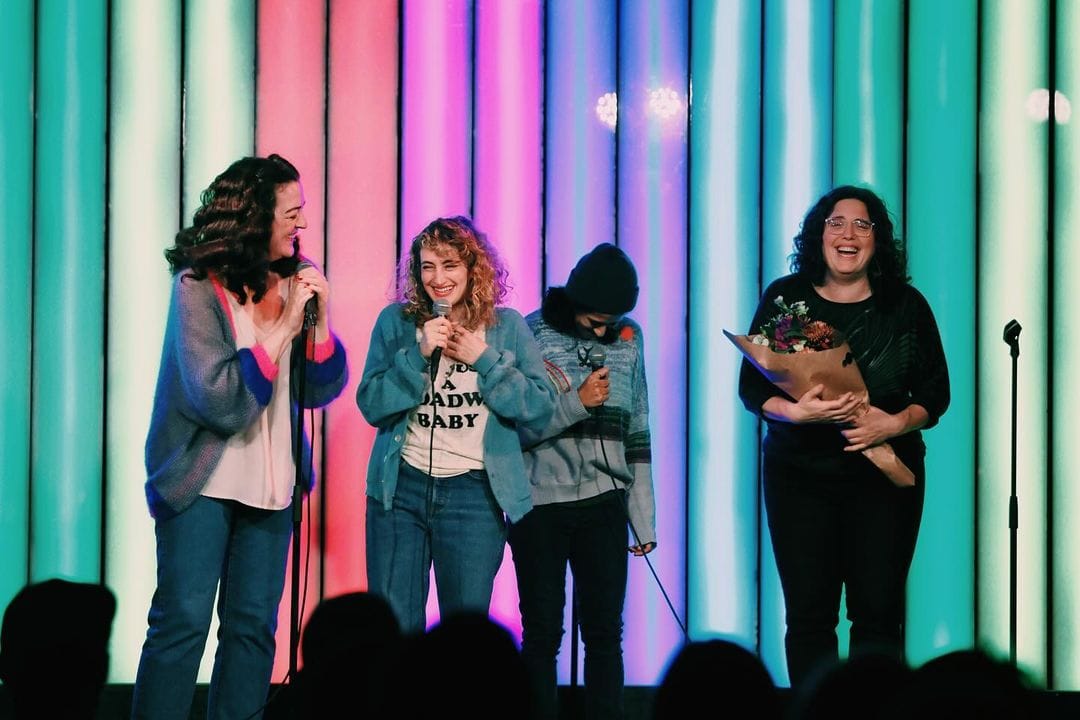
It’s curtains for one of the city’s longest-running and most popular comedy show slots.
This week, Brooklyn’s Littlefield venue announced that its Monday night standup show Butterboy is coming to an end after seven years. The show, hosted by Jo Firestone, Aparna Nancherla, Maeve Higgins and rotating guests, was a reliable and relatively cheap ticket to see established comics, national acts, up-and-comers and the occasional big-name guest star; it had been on hiatus this summer since its last show in May.
But that show was just the latest iteration of a storied Monday comedy slot that dates back to 2010, hosted first by Kurt Braunohler and Kristen Schaal and then by Wyatt Cenac. They combined for nearly a decade and a half of continuous shows where you could watch a young Aziz Ansari, John Mulaney, Jacqueline Novak or Hannibal Buress before their careers fully took off, or catch a drop-in act from a big name like Chris Rock or Bob Odenkirk.
The Monday night Littlefield slot is where a lot of comedians got their start, fine-tuned their craft or just popped in to have fun while they were passing through town, knowing the audience would be eager and ready to go on a Monday night.
As one Instagram commenter lamented: “Thanks for giving my then-new-to-New-York ass something to do on Mondays for years!”
The end of the run might be indicative of some changing trends in the local comedy scene, and the shifts in nightlife that affected the whole city after the pandemic. The shows’ producer and the venue said lower ticket sales were partially to blame. On top of that, Nancherla recently moved to Los Angeles along with Firestone and producer Marianne Ways, who both now work on the CBS show After Midnight, which made continuing its run difficult.
“I’ve historically always had trouble selling tickets,” Ways, who booked comics for all three shows in the time slot, told The Groove. “That’s the beauty and the harm of a weekly show: People always just assume it’s going to be there, so they get complacent. I think the biggest reason it ended is because of ticket sales, period.”
Littlefield’s management said the decision wasn’t an easy one, but it was tied to the economic factors that are making life hard for independent venues across the board. (Full disclosure: I worked the door for Butterboy for about a year, and have hosted lots of events at Littlefield myself.)
“[The] pandemic and the years after definitely impacted Littlefield and our shows,” co-owner Julie Kim said in an email. “As an independent venue, we haven't fully recovered so the need to get as many bodies through the door once we were allowed to reopen put a lot of pressure on us and all of our shows.”
But the city is losing more than just another reliable fun night out and cheap date spot. The lineage of the time slot goes back to the first efforts to bring alt-comedy — acts outside of the staid, musty, two-drink-minimum comedy clubs — across the river from Lower Manhattan into Brooklyn. Comics and performers said they loved the shows in their various forms for being welcoming arenas that celebrated diversity, and provided a place for socialization in the sometimes isolating and grinding comedy scene.
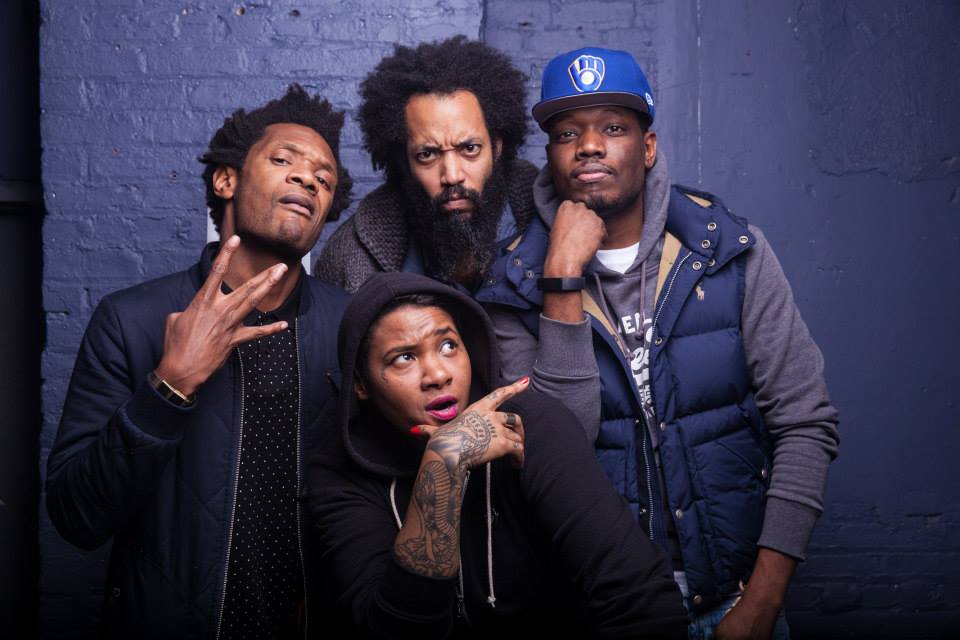
“In thinking about the atmosphere for the comedians, I thought about my own experiences performing on too many shows that were pretty homogeneous demographically and stylistically,” Cenac, whose show Night Train ran in the slot from 2012 to 2017, told The Groove via email. “It never felt good being the ‘other’ on a lineup filled with white dudes.”
Cenac started Night Train right after leaving The Daily Show; Schaal convinced him it would be a good way to stay busy in between unpredictable TV gigs. He said he would often hang in the wings next the stage and jump into another comedian's set to make them laugh, and generally “keep things loose.”
“We wanted the show to feel fun,” he said, “and not simply a place to pop in, do a set and move on.”
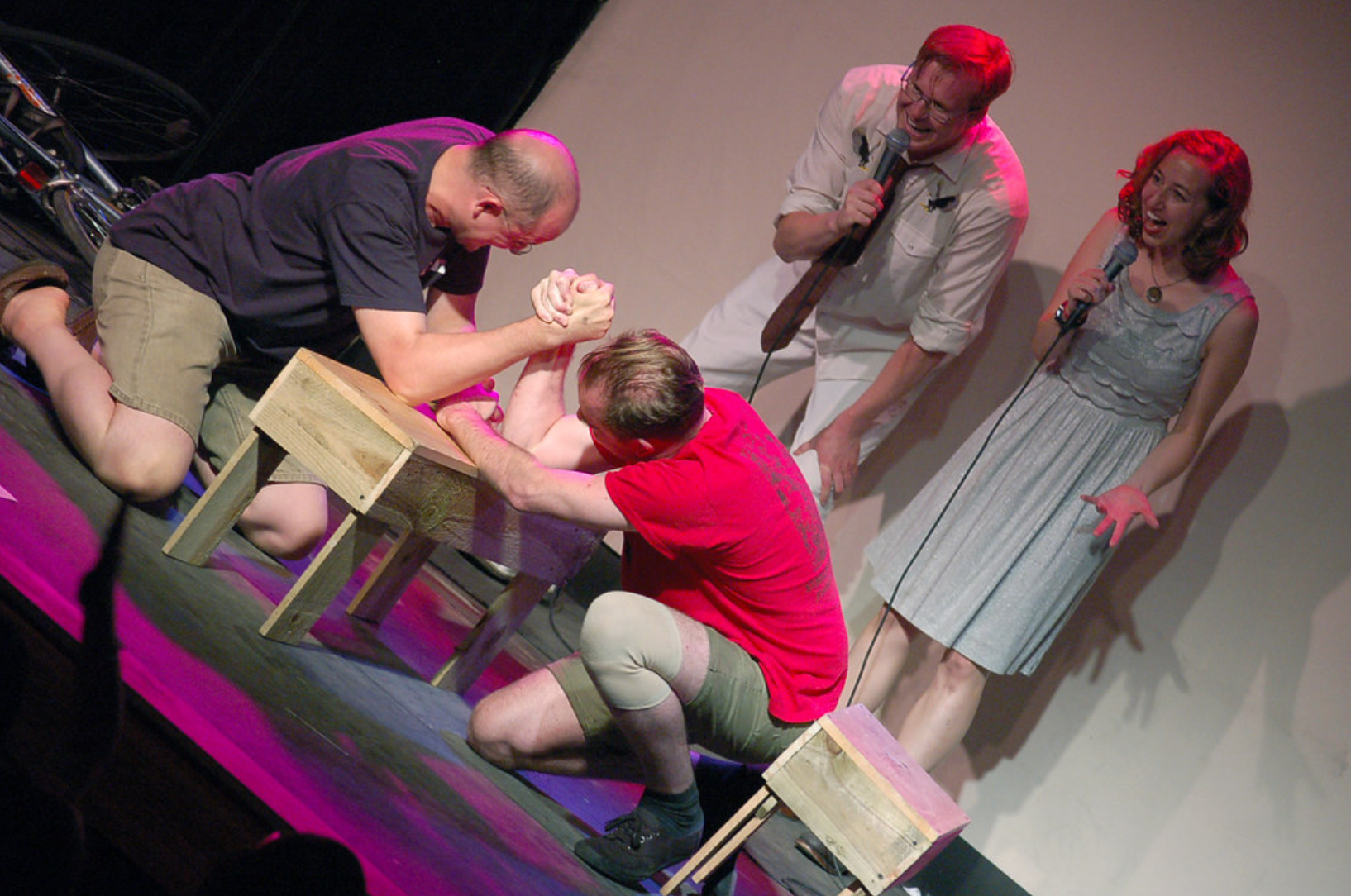
A comedy community (with free pizza)
Let’s take a trip back to 2010, the year Humans of New York first started putting shmaltz in our feeds and the year Spider-Man: Turn off the Dark first started putting its actors in the hospital. Two comedians, Braunohler and Schaal, had been doing a version of their stand-up showcase called Hot Tub at the PIT in Manhattan, and were looking to revive it in Brooklyn. The comedy venue boom in Kings County was just getting underway, with Union Hall opening in 2006 and the Bell House following in 2008.
The first show debuted on Aug. 9, 2010; the lineup included Eugene Mirman, Andrea Rosen and John Roberts. Tickets were $5.
“We did it on a Monday night because nothing happened on a Monday night,” Ways said. “There was zero competition, it was great.”
At the time, there were “like 100 comedians” who lived in New York, she said, instead of chasing their TV dreams in Los Angeles, and you could book any of them for the show.
From day one, Ways said she wanted to make the show a place to hang out, especially for comics who spend their nights trying to cram sets in at venues all over town. She immediately instituted an open secret that comics could always get in to watch the show for free.
“It fosters a sense of community. A comedy show thrives by its hangs,” she said. “Comedians love to come out to support. None of us are making a living from these bar shows. I don’t think anyone who is doing this for a living or for their art should have to pay for this show. It would really break everyone.”
Cenac credits Ways not just for her skills at booking shows every week, but for keeping them together over the years, and organizing extracurriculars like clothing swaps and field trips to build friendships.
“Marianne wanted all the comics to feel like backstage was a place they were welcome,” he said.
There was always pizza in the greenroom for comedians on the bill, or for the ones whose bills were too high.
“She also knew that a bunch of comics who weren't on the show might show up for free because they were hungry,” Cenac said. “There were probably a few broke comics who would never say it, but may have counted on that Monday night pizza week after week.”
At Butterboy, which took over the slot from Night Train in 2017, the hosts kept one five-minute spot for an up-and-coming comic, someone who hadn’t had much stage time yet.
Ways remembered a few highlights from those many years: the time Chris Rock popped by and his driver drove his SUV right into the courtyard of the old Littlefield space; the time guest host David Cross repeatedly teased the crowd that Bob Odenkirk was up next, until, finally, Odenkirk did in fact appear on stage; the time Bobcat Goldthwait, dipping a toe back into stand-up, worried the young Brooklyn crowd would have no idea who he was.
“He walked out to a standing ovation,” Ways said, “I cried, it was so beautiful.”
In 2016, Night Train briefly became a TV show on the comedy streaming platform SeeSo, which itself lasted less than two years (SeeSo had some now hard-to-find treasures that hopefully will get some appreciation in future generations).
A changing landscape
New York’s comedy landscape has changed a lot in recent years: Live Nation is running things at the Bell House these days, as The Groove first reported in July; its calendar is now focused on national touring comedians and live podcast recordings, a move some comedians said might squeeze out smaller, newer and less mainstream acts. The Upright Citizens Brigade moved theaters a few times before closing and then opening again this year; Second City opened an outpost in the first city this year.
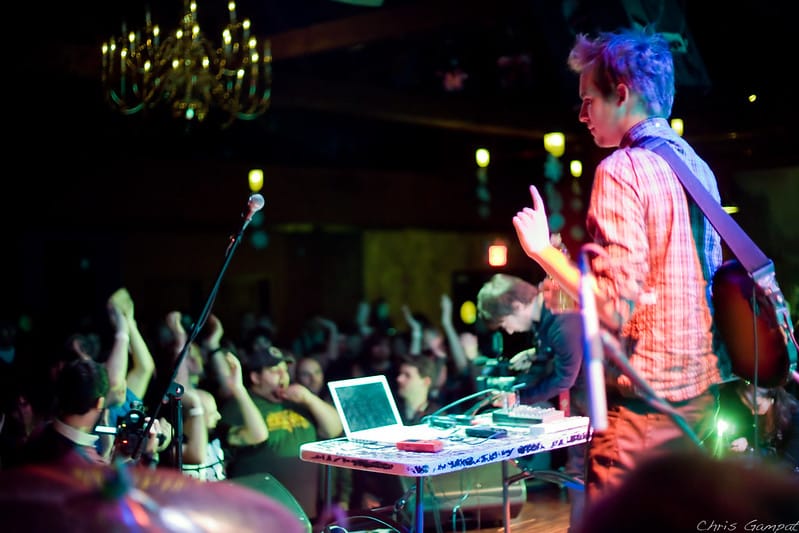
But so far, none of those have the charm of a friendly, long-running neighborhood Monday night comedy show, where you wander in and catch the next great star of a Fox animated show, see a guest hosting spot by musician Ted Leo, or just hang out and watch pre-show old cartoons while DJ Donwill spun some tunes. And none of them, several people noted, have producer Marianne Ways making it all happen.
“Whatever the comedy scene was over those 14 years,” Cenac said, “it begins and ends with Marianne.”
Don’t panic! The spirit of the Monday night slot will live on in a new show, Frankenstein’s Baby, twice a month at Union Hall in Park Slope. The show will be hosted by “friends of Butterboy” who subbed in as hosts in the past: Alison Leiby (hey, also a friend of The Groove!), Josh Gondelman, Tyrone Thornhill and Joyelle Nicole Johnson, along with DJ Don Will too.
Cenac cited a few to check out too: Fools Circle, which throws pop-up shows and block parties; and Don’t Tell Comedy, which throws “secret” shows at various locations; along with venues like Tiny Cupboard in Bushwick and Friends and Lovers in Crown Heights.
And of course, Littlefield still has plenty of comedy shows on its calendar.

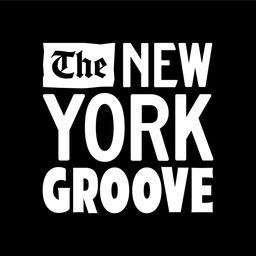
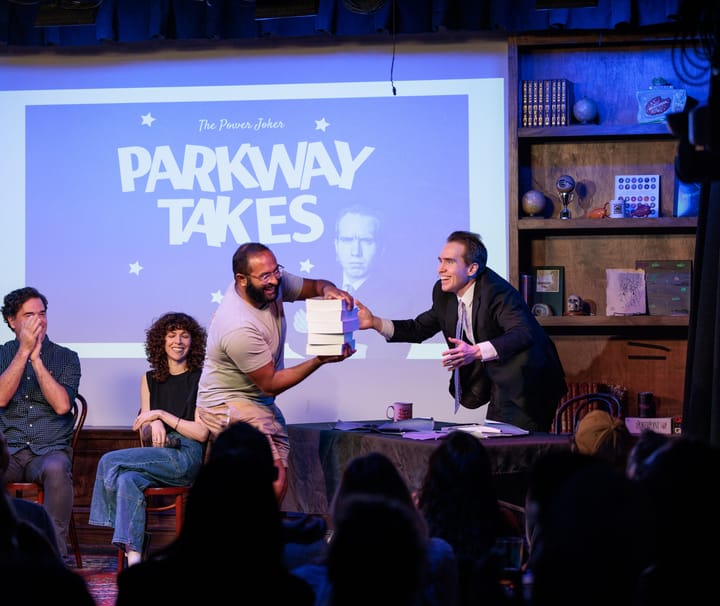
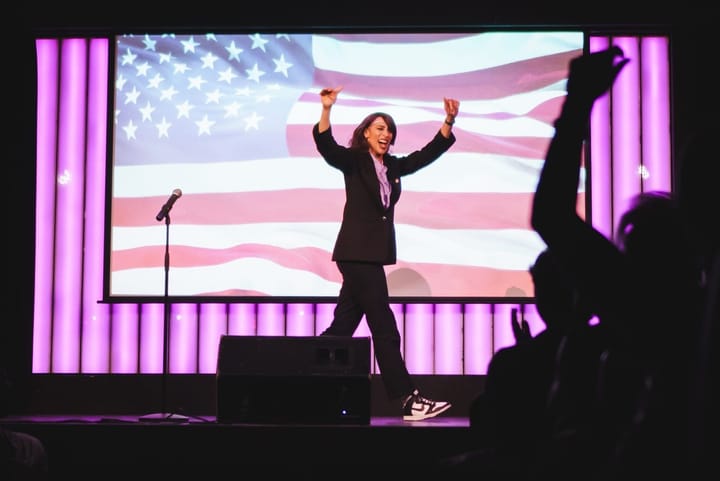

Comments ()